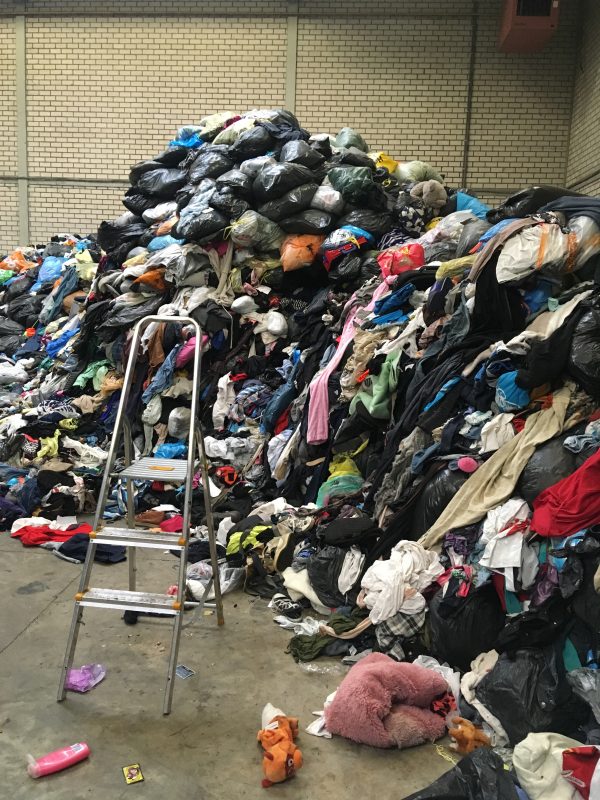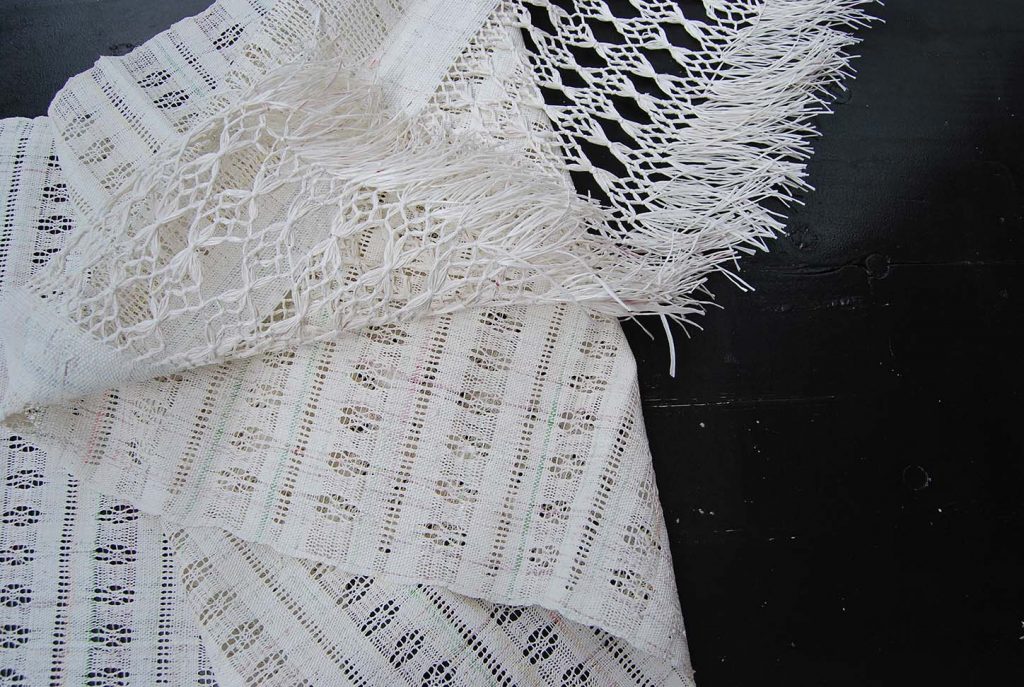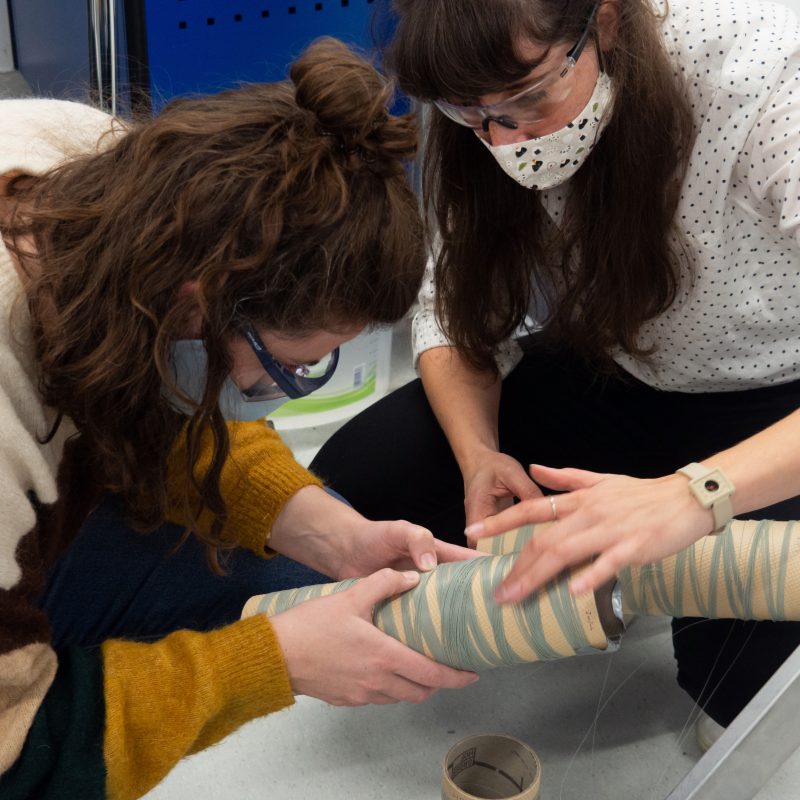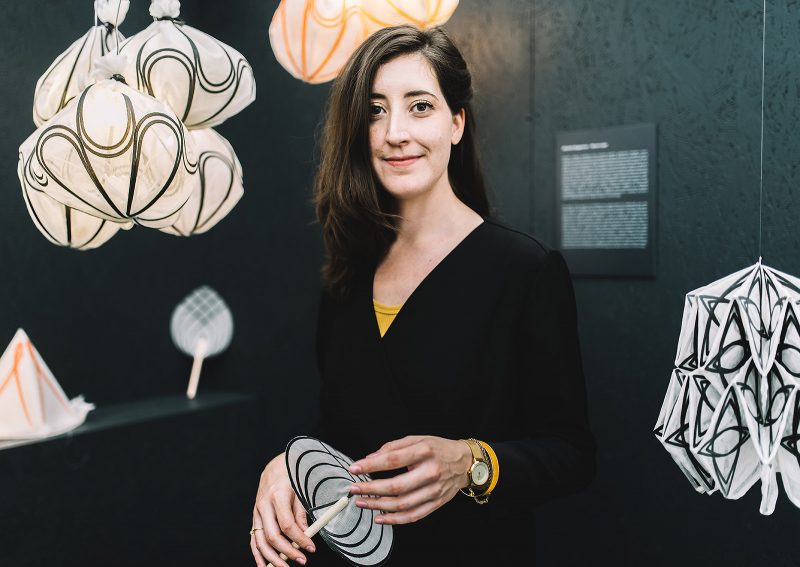The design research
Make/ Shift
The future is here and it’s damn comfortable. Gone are the times of hard labour, mending and making do. Technological progress has brought us freedoms and abundance that our great grand parents could never have imagined. Life is good. Hope you’ve enjoyed it. It can’t last. Our current comforts weigh heavily on the ecosystem, and we remain distanced from the problems they create, leaving other people to deal with our mess.

The mass-production of textiles provides a damning example of our current destructive consumer lifestyle.
It’s time to take some responsibility, and make a change. Design might help us to do just that.
To understand the role of design in this time of climate crisis, design researcher Michelle Baggerman turns to the past. She explores the impacts and costs of technological development, and how archaic forms of textile production can provide more than aesthetic inspiration for design.

Through this exploration, she uncovers an inherent sustainability in craft practises. She discusses smart ways to link this craft sustainability to modern materials and technology and encourages tradition and innovation to reinforce rather than replace each other. Designing objects to generate questions and insights about our current system, Michelle helps make the shift* to a sustainable textile future.
The new practice
Bureau Baggerman
Michelle runs Bureau Baggerman, a studio for design research, which explores ways in which craft, technology and design can contribute to a more sustainable future. Research can be commissioned or self-initiated, like for instance the newly started project Chysalis in which new textile yarns are being developed from post-consumer plastic waste.

Project Chrysalis is a collaborative project initiated by Bureau Baggerman and Jessica Den Hartog, with Aachen Maastricht Institute for Biobased Materials (AMIBM) and supported by the Creative Industry Fund.
ArtEZ Future Makers
After finishing the Master Design, Michelle also took up a position as research coordinator at ArtEZ Future Makers, a Centre of Expertise (CoE) which initiates and realizes design-driven innovation and research projects that contribute to a diverse, inclusive and sustainable society. Many projects aim to make value chains in fashion and textiles more sustainable, while also developing future scenarios through experimentation and speculative design interventions. In all these projects, designers have a prominent role to bring about innovative interventions in existing value chains or develop entirely new ones based on their vision, knowledge and experience.
Reframing Textiles
The expertise about design research for sustainable textile practices is passed on in the minor programme Reframing Textiles at Design Academy Eindhoven. In this minor Michelle teaches students ‘technique and technology’ and guides them both in individual and in collaborative projects with industrial textile producers and research labs such as EE Labels and the Textile Lab at Textielmuseum.
The designer

Michelle is a curious designer. She takes an intuitive and inquisitive approach and sees every project as a chance for exploration. That’s why she decided to focus not on product design, but on design research. In this she focuses on increasing sustainability by reframing and reinventing existing (old) knowledge and materials and linking them to new techniques, methods and materials.
Michelle’s research results in new knowledge and inspiring prototypes which demonstrate the potential of the materials and techniques she works on, and which can be adopted by industry. In this she strives for social, ecological and economical sustainability.
Article Unraveling a tea towel
MD final publication Make/Shift
high res version
Website Bureau Baggerman
New projects on Instagram
More on LinkedIn
Sign up for an occasional newsletter




